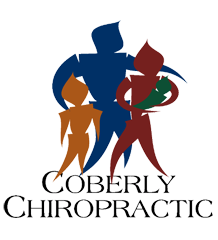March 1, 2015
In
Maternity Care and Pediatrics
Why Nurse Your Baby
- Nursing contracts the uterus after birth, preventing hemorrhage, and allowing it to return to its original size quickly.
- Nursing provides colostrum for the baby the first few days after birth. This is a thick yellow substance that is full of antibodies to help protect the newborn against disease and illness.
- Nursing provides lots of skin-to-skin contact and closeness for the baby. This is a must for normal emotional and physical development.
- Nursing causes prolactin, a hormone, to be released into the mother’s blood stream. Prolactin is sometimes known as the “mothering hormone” as it creates a relaxed mood, or a calming effect, and tends to bring out the “mothering instinct.”
- Nursing forces a mother to sit down and get off her feet, which moms of little ones need to do. Someone else can’t feed he baby for you at those times when you’re “really busy.”
- Special studies done on different types of milk have shown that the various types have different functions. For example, cow’s milk is high in calcium and develops strong bones. (Cows need that for survival. Seals’ milk develops lots of fatty tissue, which seals need for survival. Human milk’s greatest function is in developing grey matter in the brain, as man relies on his brain for survival. Statistics in Japan show that children nursed for a year or longer have a higher IQ and do better in school.
- Breast milk changes as the baby grows to fit his/her exact needs. There’s never the worry about the “formula agreeing with the baby.” For allergy prone families, this is especially important.
- Babies have a natural sucking reflex and need. They can’t suck on an empty bottle, but the breast serves as a great pacifier as most of the milk is obtained within the first 5 to 10 minutes.
- Total nursing (no supplements, cereals, or solids) acts as a fairly good means of birth control. Most mothers don’t resume a period for 8 to 14 months, depending on the frequency of nursing, time spent at each feeding, and so forth.
- Nursing saves lots of money. You don’t have to buy bottles, nipples, sterilizers, formula, baby food, etc. The baby can thrive well on breast milk alone for at least six months and many go on until eight or nine months. By then, they can start with soft table foods, such as pears, bananas, and carrots.
- Breast milk doesn’t make your clothes or the baby smell sour after he spits up as formulas do. It also doesn’t stain clothes. The stools from breastfed babies don’t have a foul, offensive odor either.
- Stools from totally breast fed babies are liquid. Don’t confuse this with diarrhea. Constipation is a common problem with bottle fed babies.
- Breast cancer is practically unheard of in countries where all women nurse.
- Night time feedings can be simpler by just tucking the baby in bed with you and go back to sleep. The baby will eat as needed.
- It’s easier to travel. There are no bottles, food, and so forth to prepare and take or spoil. Just grab a few diapers and run. The milk is always ready, the right temperature, and the right amount.
- Breastfeeding helps to develop strong and well formed gums and jaws, and it’s reported by dentists that children nursed for long periods of time have fewer orthodontic problems later in life.
- If you’re concerned about the weight you’ve gained during your pregnancy, just remember that nursing your baby will help you to get that weight off fast and return to your regular shape.
- Your baby also receives natural immunities, which you have in your body. Breastfed babies may still get colds on occasion, but as a whole, they are much more immune to the illnesses around. The baby will also be immune to those childhood diseases, such as chicken pox and measles, to which the mom has immunities.
- It’s the way God intended us to nourish and feed our young. It’s natural, easy, and beautiful.


